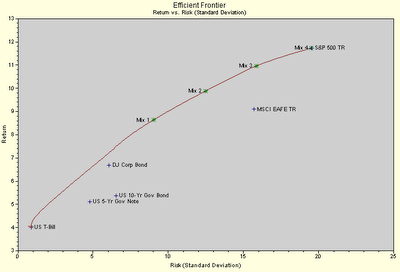A lot gets written about the evils of credit cards, and how one of the best things someone having financial difficulties can do is to just cut up their credit cards. That may be the case for some people, but I've never really thought that applies to me.
I got my first credit card in university. It was a basic, no-fee student card. I think my initial limit was something like $500 to start with.
I remember some friends and I were planning a trip together, and the easiest way to book those sorts of things is to put it on a credit card. A friend of mine didn't have one, so she cut me a cheque, and I put her fees on my card too. The charge for the two of us combined would have put me over my limit, so I nervously called the bank to ask them if they might be kind enough, to, uh, bump up my credit limit to $2000 a month -- just this once, pretty-pretty please.
The lady on the phone was quite nice, and she briefly put me on hold while she reviewed my file. I was sweating it out on the other end, certain she was going to figure out I was only earning about $25,000 a year, eking out a frugal living in Canada's most expensive city, living with 4 roomates in a crappy student house. She was probably in the process of telling the whole office about my audacity, having a good laugh at me before coming back with a "who the hell do you think you are?" speech, I reasoned.
Little did I know.
Imagine my surprise when she came back on the line: "Certainly sir. I've reviewed your file and am pleased to tell you that not only has your credit request been approved, but I'm further authorized to offer you our platinum card with a limit of $10,000 a month."
I was stunned. It was mind-boggling to me that the bank was willing to front me 40% of my annual salary, sight unseen, every month. I'm now a lot more savvy about the way banks operate and the way they make their money, but at the time I was positively shocked at the kind of money they were throwing my way.
I ended up signing up for RBC's no-fee platinum card -- how's that for an oxymoron -- and used it diligently for 2-3 more years, never coming anywhere near that $10,000 limit. I've since upgraded cards once again and my credit limit has been once again bumped up -- still to a level I can't fathom ever approaching in any given month. But I'll never forget my shock at the way that played out. I think that's the moment my eyes were really opened up to how the financial system works.
Banks have a bad reputation with a lot of people. They get accused of trying bankrupt people, but really, having you go bankrupt is the last thing any bank wants. If I was a cynic, I'd say a bank's goal is to keep you in a manageable amount of debt for your entire life. Never deep enough to make you go under, but just enough so that they can rely on your for a constant flow of steady income in the form of debt repayments. Giving people who aren't good with money a credit card is one of the best ways they can achieve this.
I've been lucky to have parents that helped finance my education, and I know they're still behind me today, ready to bail me out if I ever go in any serious finacial problems. Happily enough, and largely thanks to the financial education they've given me, I've never been in a position where I had to use that safety net.
I think VISA has earned a total of less than $100 from me in the past 10 years, all from one month when I couldn't pay my bill off in full and had to resort to only paying the minimum balance. My interest charge was $87 the next month, and it hurt so much to pay it that I swore to myself I'd never let that happen again. I suppose $87 isn't too much to pay for nearly 10 years of convenience, plus special perks like extended warranties and travel insurance. But something inside me found it fundamentally abhorrent, so I've never done it again.
I guess what I'm saying is that for people like me who pay off their balance in full every month, having a credit card is a great, convenient way to learn about money, build up credit, and squeeze a few perks out of your bank.
But if you find yourself in any sort of debt problems, cutting up the credit cards with their 18% interest rates is a great place to start.
